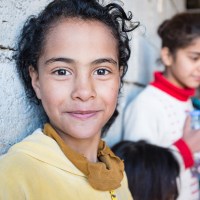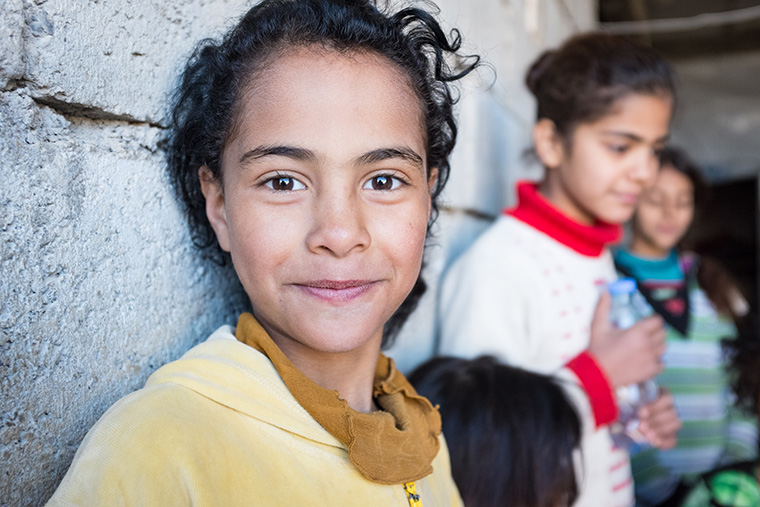We approach the house–it’s spotlessly clean. The front walk is swept and washed. The floors are washed. The laundry is clean and hanging out in the sun. Everything is in it’s place. And we think that things must not be so bad for these displaced families…
Then we go inside. And we realize what is missing–no source of heat or stove to cook food. There is little food, no diapers, and no milk for the babies. We make lists of the most urgently needed items.
And we come back.
With the second visit, the initial shock has passed. We’re able to notice smaller details this time. In a home with few possessions, a window sill is lined with cough syrup and medicine. So we ask–and learn that everyone is sick. Everyone has been sick. We learn that the walls leak water when it rains. We add tarps to our list.
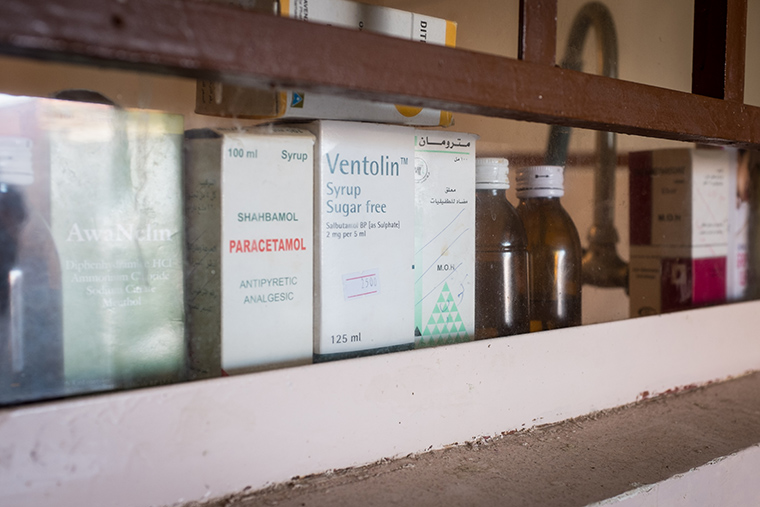
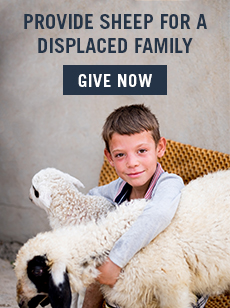
With the second visit, there is a little trust developed–we saw their need, and came back to help. This time they ask for what they need beyond critical items. They ask for soap to wash their dishes, their clothes, and themselves. And we pause, in the cold, and realize that we haven’t seen a bathing room at the house. So we ask–no, there isn’t one. And so we ask “Where do you wash your babies?” They look embarrassed as they tell us they have to wash them outside in the cold. We start to make a plan.
With the second visit, we recognize some of the assumptions made on the first visit. We enter a home where a stove was delivered two weeks before, but the stove is nowhere to be seen. So we ask–there it is, still in the box, tucked safely in the corner. It’s then that we learn that the husband is nearly blind, and his wife doesn’t have the confidence to set up the stove herself, and so it sits in the box. Within minutes, we set it up and they can finally cook a meal.
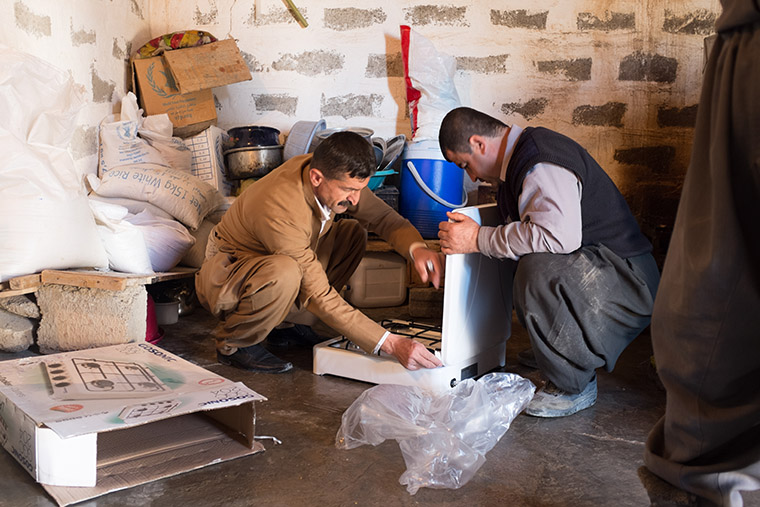
With the second visit, faces are a little familiar. We can take a longer look without feeling as intrusive. And we notice the daughter with large patches of scaly scalp, where there should be long curly hair. And we ask–they had the tiny sum needed to see a doctor, but they can’t afford to fill the prescription. In short order we fill the prescription, and the girl gets a little dignity back.
There is something powerful that happens when we ask each individual family what it is they need to be well. There is something beautiful that happens when we come through. And hope…sometimes hope is sparked with a tarp, a stove, and tube of ointment. Not to mention a second visit.

